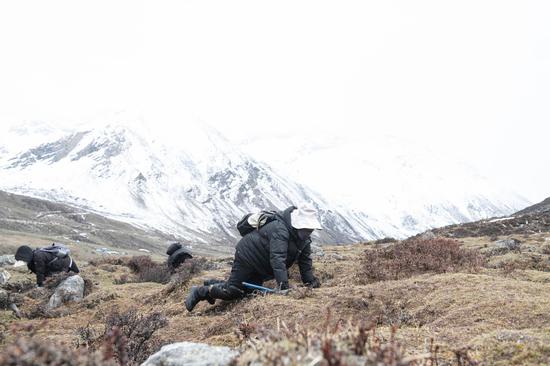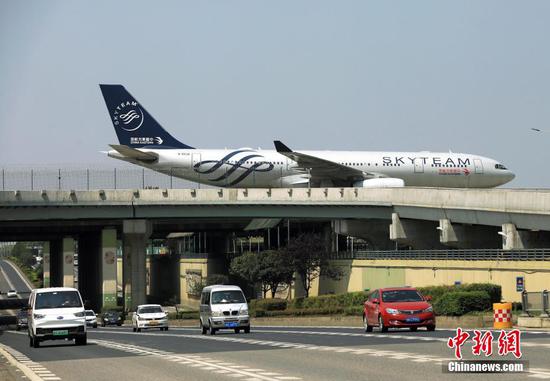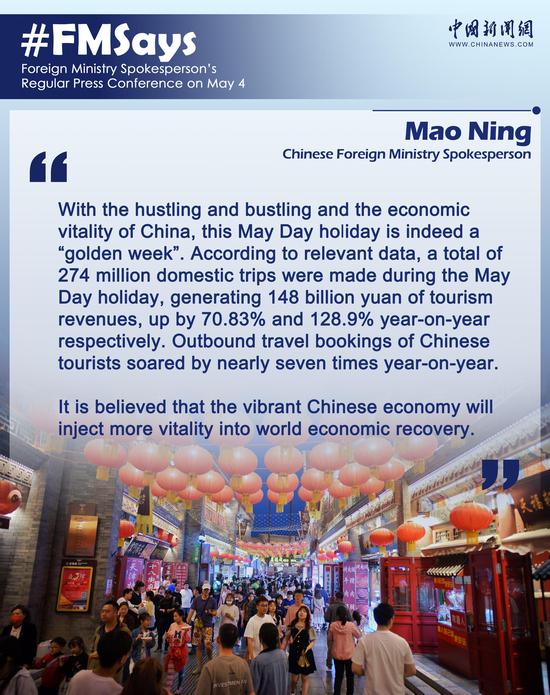Chinese authorities, including national security and other departments, have launched a law enforcement action against Capvision, a leading Chinese consulting firm.
The company is alleged to have "induced domestic experts in key fields", including military industry and high technology, to offer intelligence and thereby played into the hands of overseas forces, China Media Group reported.
Capvision accepted a large number of sensitive consulting projects, some of which were closely related to foreign governments, military and intelligence agencies.
From 2017 to 2020, the firm received more than 2,000 remittances from more than 100 overseas companies, amounting to over $70 million, according to Chinese national security agencies.
Capvision said in a statement on its WeChat account that it would resolutely abide by China's national security rules and take the lead in ensuring the consulting industry was compliant.
In recent years, some Western countries have increasingly engaged in intelligence activities to steal information related to China's military, industry, finance and other key sectors, in order to implement their containment and suppression strategies against China, the report said on Monday.
National security agencies have uncovered many complex foreign entities that, in order to evade China's laws and regulations as well as supervision on sensitive industries, conceal their foreign backgrounds and use domestic consulting firms to steal State secrets and intelligence related to the country's key areas.
Wang Wenbin, spokesman for the Foreign Ministry, told a regular briefing on Tuesday that the campaign is a normal law enforcement action aimed at promoting the healthy and normal development of relevant industries and safeguarding national security and development interests.
Capvision, founded in 2008, is a leading company offering "rapid, accurate and efficient expert knowledge" to major financial institutions, consulting companies and multinational enterprises, according to the firm's website.
The main advantage of its services is to provide clients with specialized industry knowledge through a network of more than 500,000 experts, the Shanghai-based firm says in its introduction on the website. It has branches in the Hong Kong Special Administrative Region, New York, Malaysia and Singapore.
Capvision claims to have more than 1,000 clients across the globe, and the majority of its business involves expert consultation that is mainly conducted by phone, the CMG report quoted a Shanghai national security police officer as saying.
Company staff members said they gained access to the huge number of experts, professionals and scholars by public networking, such as via resumes and recommendations.
However, the CMG report said that the company's employees were actually targeting influential experts working in vital fields including domestic policy research, national defense, finance and currency, high technology, energy and resources, and medicine and health.
Experts who provided consultation would sign business contracts with a "disclaimer clause" that required them to assume responsibility for confidentiality and face any legal consequences themselves.
Nevertheless, some experts were attracted by the hefty remuneration offered by Capvision, which they thought was a law-abiding and regulated enterprise, and then eased their vigilance, divulging internal sensitive content and even State secrets and intelligence when providing foreign-related consulting services, said the national security police officer in Shanghai.
The CMG report gave an example in which a former senior researcher at a major State-owned enterprise who had provided consulting to Capvision was sentenced to six years in prison for spying and for stealing and illegally providing State secrets and intelligence for overseas entities.
The researcher, surnamed Han, became a part-time expert at the invitation of Capvision in 2015, although in his primary job he was not allowed to have a part-time job as well.
At the beginning, he refused to offer confidential information such as product cost and profit rate, when providing consultation, but he soon relented after the staff of Capvision claimed that Han would get triple payment as long as he answered those sensitive questions.
In addition, as a company with a large amount of overseas business, Capvision not only encouraged and persuaded experts in key fields to disclose confidential information during consultations, but also failed to inform those experts of the real identity of the clients.
Han said he only found out by accident that his long-term client was from overseas. Persuaded by Capvision, he became increasingly active in accepting overseas consultation in order to get more payments from Capvision.
The former researcher downloaded nearly 5,000 documents via the internal network of the company for which he worked.
It was found that Han provided three pieces of national secret information, 13 pieces of intelligence and 18 pieces of information involving commercial secrets to foreign entities.


















































 京公网安备 11010202009201号
京公网安备 11010202009201号